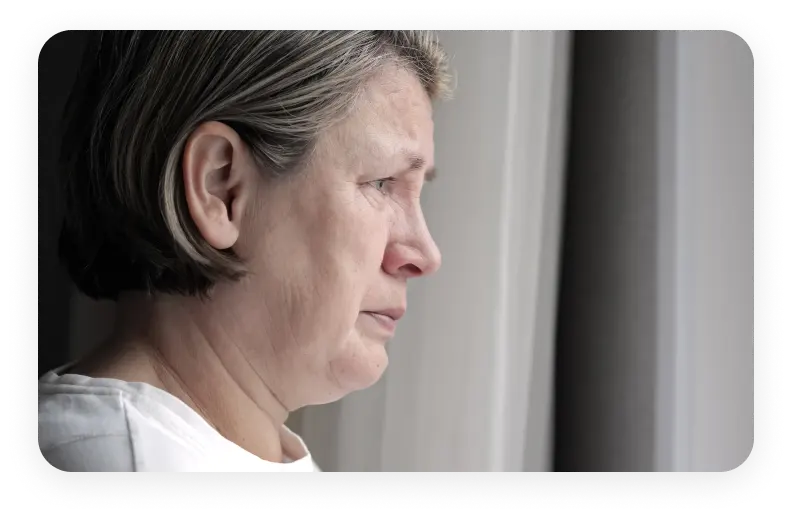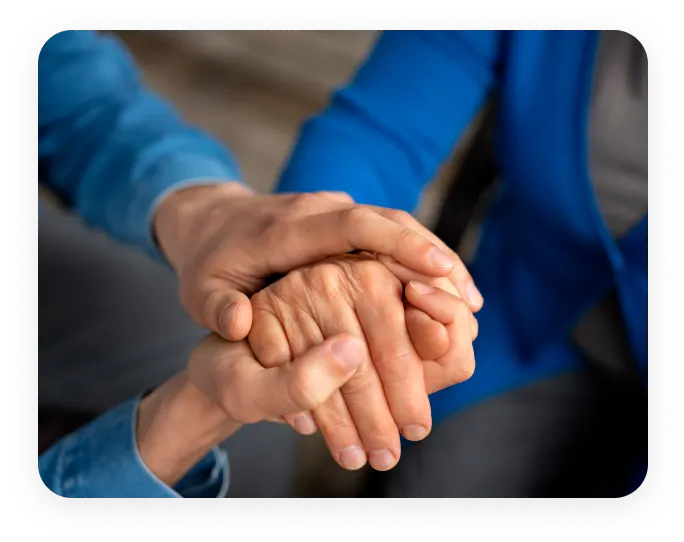Depression
Did you know?
That anxiety disorders are the most widespread mental health condition in the United States, impacting a staggering 40 million adults annually? That's about 18.1% of the adult population! Surprisingly: while these disorders are highly treatable, only around 36.9% of those affected actually receive treatment.
Let us Understand Depression
Depression is defined as a state of low mood and aversion to activity that can affect a person’s behavior, thoughts, feelings, and sense of well-being. It causes a persistent feeling of sadness and loss of interest. Depression is also called a major depressive disorder or clinical depression, and it affects how you feel, think, and behave. It can even lead to a variety of physical problems. It should be known that depression isn’t just having the “blues.” It isn’t a weakness and isn’t something that can just go away on its own.

What are the 3 types of Depression?
1. Major Depressive Disorder
When someone experiences five or more symptoms of depression consistently for at least two weeks it is termed as Major depressive disorder. During these episodes, it's not uncommon for everyday activities like work, studying, eating, and sleeping to become incredibly challenging, if not impossible.
These episodes of major depression can vary in frequency and intensity. For some, they may only happen once or twice in a lifetime, while for others, they may recur frequently, casting a shadow over various stages of life.
Reasons behind these episodes can be
What's particularly challenging is that major depressive symptoms can arise in response to significant life events, such as the loss of a loved one, the end of a romantic relationship, or a serious medical illness. In some cases, these symptoms may even occur simultaneously with the event or develop shortly afterward, further complicating an already difficult situation.
2. Persistent Depressive Disorder (PDD)
Persistent depressive disorder, often referred to as PDD, presents a unique challenge. Unlike the intense, shorter episodes of major depressive disorder, PDD lingers for approximately two years or more. While it's generally less severe than major depression, it encompasses the same array of symptoms.
Reasons for these prolonged feelings
Individuals grappling with PDD may find themselves caught in a cycle of low energy, fluctuating appetite, and disrupted sleep patterns. Additionally, they may experience persistent stress, irritability, and a subtle inability to find joy in activities that once brought them pleasure. Though less acute than major depression, PDD's prolonged duration can still significantly impact one's quality of life.
3. Bipolar Disorder
Bipolar disorder, formerly known as manic depression, is characterised by dramatic mood swings that cycle between extreme highs, known as mania or hypomania, and profound lows of depression. This fluctuation between intense emotional states can profoundly impact a person's life, creating a rollercoaster of experiences that range from euphoria to despair.
Diagnosis: How to know if someone is suffering from Depression?
- Overwhelming feelings of sadness, emptiness, or hopelessness.
- Uncontrollable bursts of anger, irritability, or frustration.
- A profound loss of interest or pleasure in activities once enjoyed.
- Disturbed sleep patterns, ranging from insomnia to excessive sleeping.
- Persistent fatigue and a pervasive lack of energy, making even the simplest tasks feel like monumental challenges.
- Fluctuations in appetite, leading to changes in weight.
- Heightened anxiety, restlessness, or agitation.
- Slowed cognitive processes, including thinking, speaking, or moving.
- Persistent feelings of worthlessness or guilt, accompanied by self-blame.
- Difficulty concentrating, making decisions, or remembering things.
- Recurrent thoughts of death or suicide, sometimes culminating in attempts.
- Unexplained physical ailments, such as headaches or back pain.
Good News! Depression is treatable, let us understand how?
These tests help doctors diagnose and manage diabetes or prediabetes, enabling timely intervention for better health outcomes.
Regular screenings are essential, especially for those at risk, to catch and address these conditions early.
- Educate yourself: Take the initiative to learn about depression and its nuances. Understanding your condition can empower you to actively participate in your treatment journey. Encourage your loved ones to educate themselves as well, fostering a supportive environment.
- Recognize warning signs: Work closely with your healthcare team to identify potential triggers for your depression and establish strategies to manage worsening symptoms. Don't hesitate to reach out if you notice any changes in how you're feeling.
- Stay committed to your treatment plan: Attend all scheduled appointments with your doctor or therapist, and adhere to your medication regimen even if you're feeling better. Consistency is key to long-term stability.
- Prioritise self-care: Nourish your body and mind by maintaining a balanced diet, engaging in regular physical activity, and ensuring adequate sleep. Find activities that bring you joy and incorporate them into your routine. If sleep troubles persist, consult your doctor for assistance.
- Limit alcohol and recreational drug use: While these substances may offer temporary relief, they often exacerbate depression in the long run, hindering treatment progress. Opt for healthier coping mechanisms instead.

Depression Treatment and Options in Clearwater, Seminole and Palm Harbor at All Care
We understand that depression does not have a one-size-fits-all solution. We hope to work together to find meaningful and effective treatments for your depression. If you or someone you know is suffering from mild or severe depression, please don’t hesitate to call us or call us or schedule an appointment. We are here to help.
By integrating these self-care practices into your life alongside professional treatment, you can enhance your overall well-being and better manage the challenges of depression.
At All Care we believe,
"The only thing more exhausting than being depressed is pretending that you're not."
Reach Out To Us





